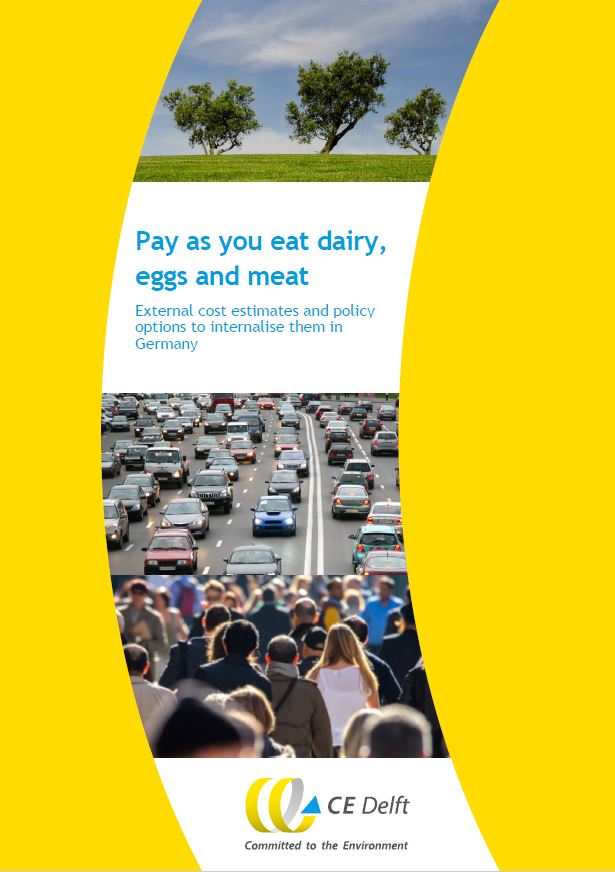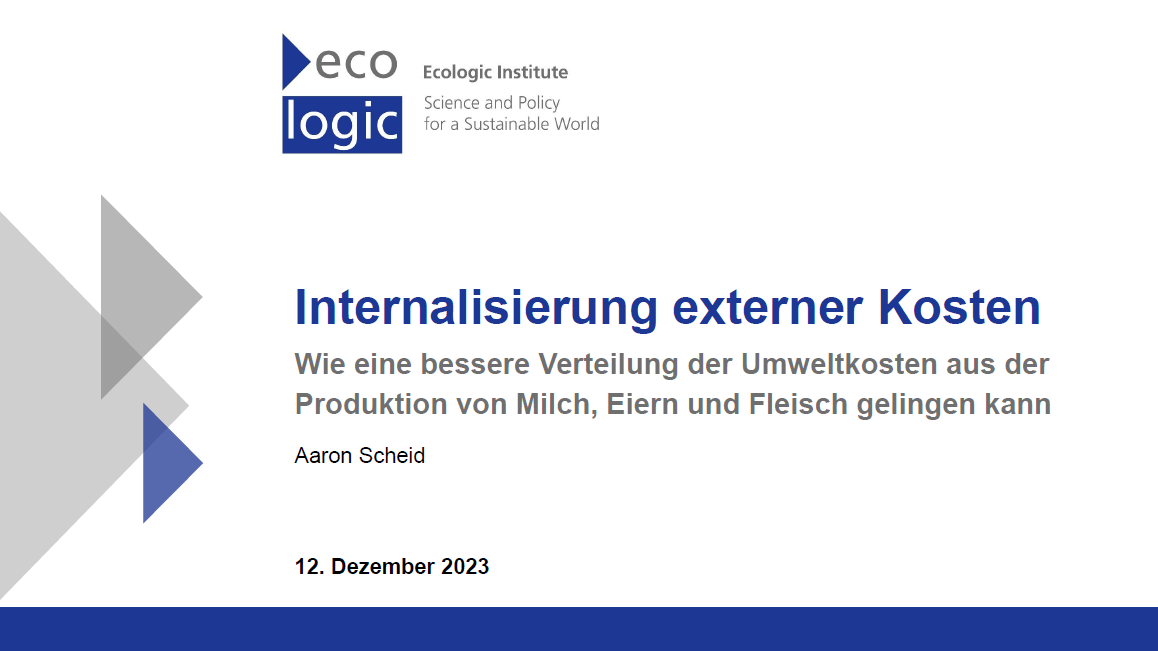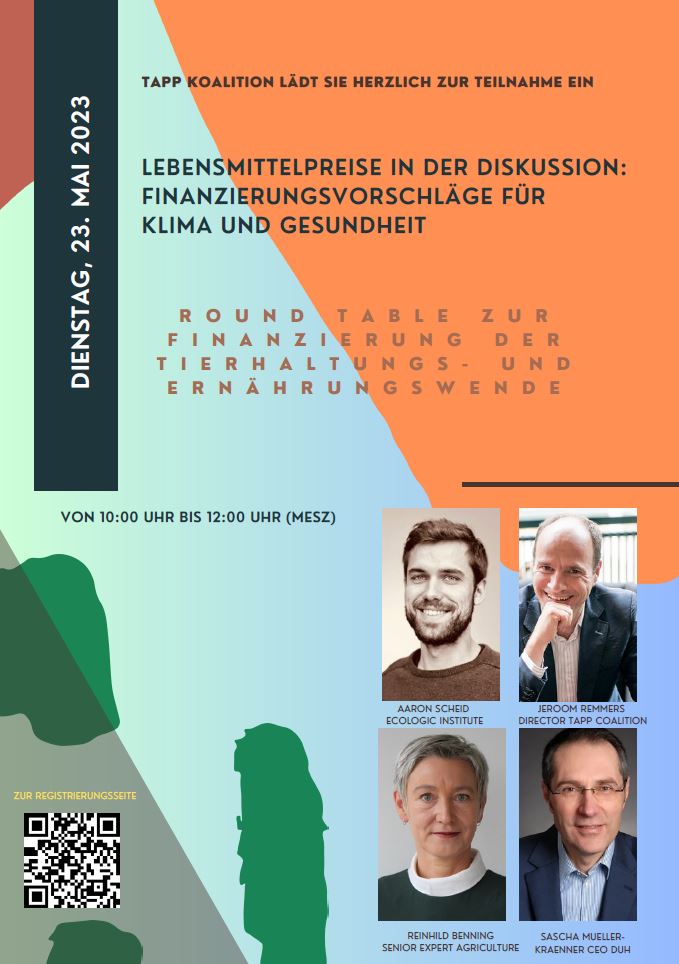
© CE Delft, 2023
Pay as You Eat Dairy, Eggs and Meat
External Cost Estimates and Policy Options to Internalise Them in Germany
- Publication
- Citation
De Bruyn, Sander et al. (2023): Pay as You Eat Dairy, Eggs and Meat. External cost estimates and policy options to internalise them in Germany. CE Delft: Delft.
Livestock farming and the consumption of animal products are important in Germany, but they associated with a wide range of environmental problems: global warming, eutrophication of soils and waters that lower biodiversity, emissions of ammonium that are formed into secondary aerosols harming human health and extensive land use that comes at the expense of nature and biodiversity.
These effects impose ‘external costs’ on society as they are not (fully) reflected in the price of the animal products. The external costs form the "unpaid bill" of consuming animal products. This study, co-authored by Aaron Scheid and Benjamin Görlach from Ecologic Institute, estimated the external environmental costs of animal products: meat (both from beef, veal and dairy cows), pork, chicken, eggs and (hard) cheese. The analysis shows that external costs are substantial, ranging between the € 0.29 for a liter of milk to € 10.16 per kg of beef. These external costs are primarily caused by emissions of greenhouse gasses plus ammonia from manure handling and application as fertilizer (plus artificial fertilizer) for growing crops for feed.
Furthermore, the study investigated two policy measures to pass these environmental costs through to consumers:
- An excise levy on animal products.
- Removal of the lower VAT tariff on animal products.
Both measures are feasible from a legal perspective and can be implemented, but they also need some more scrutiny in regards to effectiveness and practical design. They lead to additional revenue for the state, which can be used to support consumers buying healthy and environmentally friendly food or to finance the transition of the livestock sector in Germany. Both would have a positive impact on the environment, consumers and livestock farmers in Germany.
External costs of consumption of animal products can be most effectively combatted by internalizing them into the price. This gives consumers the chance to take the environmental impact into account when deciding to consume animal products or one of the plant-based alternatives and the sector can be steered towards cleaner production methods and alternatives for animal products.





